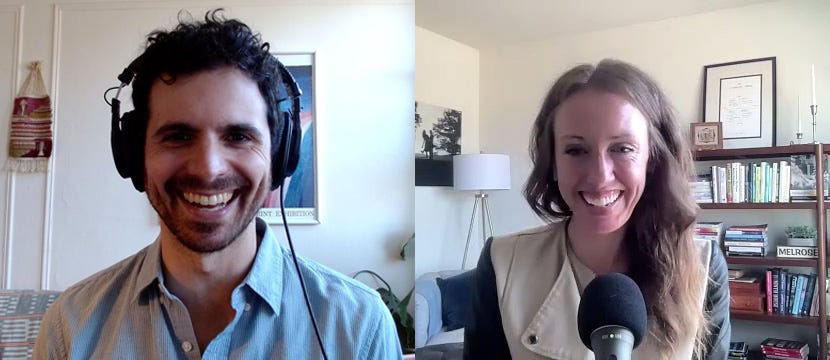In Without Children: The Long History of Not Being a Mother, and in conversation, Professor Peggy O’Donnell Heffington traces the collapse of once-common communal methods of childrearing. Her words contextualize why having kids — or choosing not to — feels so challenging for Americans in particular.
Professor Heffington teaches gender and women’s history at the University of Chicago. You can find her writing in The New York Times, The Washington Post, Time Magazine, and more. A condensed transcript edited for clarity is below.
You can also listen to the audio of our conversation, which includes a discussion of the history of IVF (and recent events in Alabama), how one guy’s masturbation problems led to the first abortion restrictions, eugenicists steering environmental movements off course, the weaponizing of nuclear family structures against Indigenous peoples, Professor Heffington and me nerding out about going to the same college, and more:
Why Choosing to Have Kids Feels Harder Than Ever
Listen now (55 mins) | Audio of my conversation with Professor Heffington.
Ben: You write, “The kind of families where grandmothers and other extended kin would have played central roles in raising and caring for children was the norm for much of history.”
Can you explain a little more, please?
PH: You don’t have to go back that far in American history to find that the model of raising children exclusively within the context of a nuclear family was relatively uncommon.
The community and the family were much more intertwined. Women without children of their own played fundamental roles in the project of raising children in a community. Grandmothers played central roles, too. In one telling example, researchers found that in colonial French Canada, the further a woman moved from her mother, the fewer children she was likely to have, and also the more likely her children were to not make it to adulthood.
I think we can interpret that as both the importance of grandmothers specifically, and also the importance of community support more broadly.
Ben: I noted the researchers also found that one woman had an estimated 195 grandchildren. Given that you had more kids the closer you were to your grandmother, I can only deduce that this particular grandmother was Mother Ginger from The Nutcracker, and her entire family lived in her dress.
PH: The whole town must have been related.
We’ve since stripped away those deep levels of community support. In the late 17th and early 18th centuries, Northwestern Europe diverged from the rest of the world in how people married and organized families. People started waiting longer to get married. They started moving away from their families of origin, no longer living in multi-generational family compounds. And they started having a lot fewer kids, later in life.
A 19th-century French sociologist ended up terming this the “unstable family.” Another anthropologist would later call it the nuclear family. The sociologist Patricia Hill Collins says not only is it the most unusual way of raising children in the world, it's also the most stressful way of raising children in the world.
Ben: It strikes me how rapid the change in family structures was, especially in the States.
PH: Yeah, new family patterns made their way across the Atlantic a little later. In the decades following the American Revolution, there was a dramatic transformation from community-based family structures to the nuclear family. By 1840, many people characterized it as the only natural way to create a family, a notion that’s stuck with us ever since.
Historians have offered various explanations for why the change happened then. I'm compelled by the idea that it was in part due to the ideals of the American Revolution, which are built on the individual right to happiness and liberty, becoming internalized into the way people were setting up their lives.
The nuclear family was also used as a way to distinguish American identity from Indigenous communities, which had more communal child-rearing structures.
Ben: As another point of comparison, you talk about the communal forms of childrearing that enslaved people transported from West Africa.
PH: That’s right. Patricia Hill Collins has also written about how West African parenting practices were more cooperative. The person who gave birth to a child was always understood to have a special relationship with the child, but they weren’t understood as the only person who could mother the child.
Enslaved West Africans and their descendants in the U.S. maintained those practices in part because of tradition and in part to ensure community survival. In a society where families were routinely torn apart, people had to care for each other’s children for the community to survive.
Notably, in the decades after the Civil War, Black women's fertility dropped dramatically. One scholar has suggested that for many formerly enslaved Black women, limiting their fertility was a way of experiencing liberation.
Ben: The drop is indicative of another point of yours: that throughout history, women have made active decisions to limit their fertility.
Related, you have a really interesting discussion about environmental concerns over childbirth. Those concerns are more pressing now than ever, but you also argue they’re far from new.





